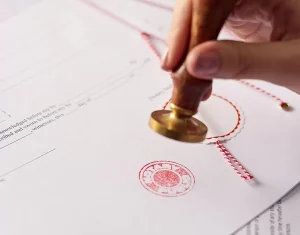Today, healthcare services stand out as a critical area that directly affects the quality of life of individuals. However, errors in medical interventions can lead to serious legal and criminal liabilities for both the patient and the doctor.
Malpractice is defined as a medical error that causes harm to the patient as a result of the doctor’s failure to act in accordance with medical standards and to exercise due care and attention. On the contrary, negative situations that inevitably arise after an intervention in accordance with medical standards are called “complications” and are not considered to be the responsibility of the doctor.
Every medical intervention involves certain risks. In some cases, even if doctors take all care and attention, unwanted consequences may occur in the patient. These inevitable consequences, i.e. complications, are not the responsibility of the doctor. However, the doctor is expected to identify the complication in time and manage it correctly.
On the other hand, if the doctor acts contrary to medical standards or fails to manage the complication properly, criminal liability may arise. Doctors can be held liable for crimes such as negligent injury or negligent homicide due to malpractice.
- Malpractice and Criminal Liability
Doctors may be criminally liable if they
- Failure to intervene in accordance with medical standards,
- Lack of due care and attention,
- Failure to manage complications correctly.
In such cases, the doctor may be held liable for “negligent injury” or “causing death by negligence”.
Authorization for Investigation in Case of Malpractice
The conduct of criminal investigations against doctors is regulated as follows:
For doctors working in public and private hospitals, permission to investigate is granted by the Professional Responsibility Board of the Ministry of Health.
Criminal proceedings cannot be initiated without an investigation permit.
The Board’s decisions can be appealed to the Ankara Regional Administrative Court.
With this regulation, the requirement for an investigation permit, which was previously only applicable to doctors working in public hospitals, has been made mandatory for doctors working in private hospitals.
- Malpractice and the Turkish Penal Code
The crime of causing death by negligence is evaluated under Article 85 of the TPC and the penalties are as follows:
A person who causes the death of a person by negligence shall be punished with imprisonment from two to six years.
If the act results in more than one death or injury, the penalty may be imprisonment from two to fifteen years.
The offense of negligent injury is covered by Article 89 of the TPC:
If the victim’s health is permanently impaired as a result of negligent injury, the penalty is increased by one.
If the offense is committed against a plurality, imprisonment from six months to three years may be imposed.
Furthermore, pursuant to Article 53/6 of the TPC, doctors may be banned from practicing for a period of not less than three months and not more than three years.
- Conclusion
Malpractice is a situation where a doctor acts in breach of his/her professional duty of care and diligence and causes harm to the patient. However, complications that arise despite the doctor acting in accordance with medical standards are not the responsibility of the doctor.
The law requires the permission of the Ministry of Health’s Professional Responsibility Board to initiate criminal investigations against doctors.
Penalties for the crimes of negligent injury and killing are determined according to the causal link between the doctor’s fault and the outcome.



